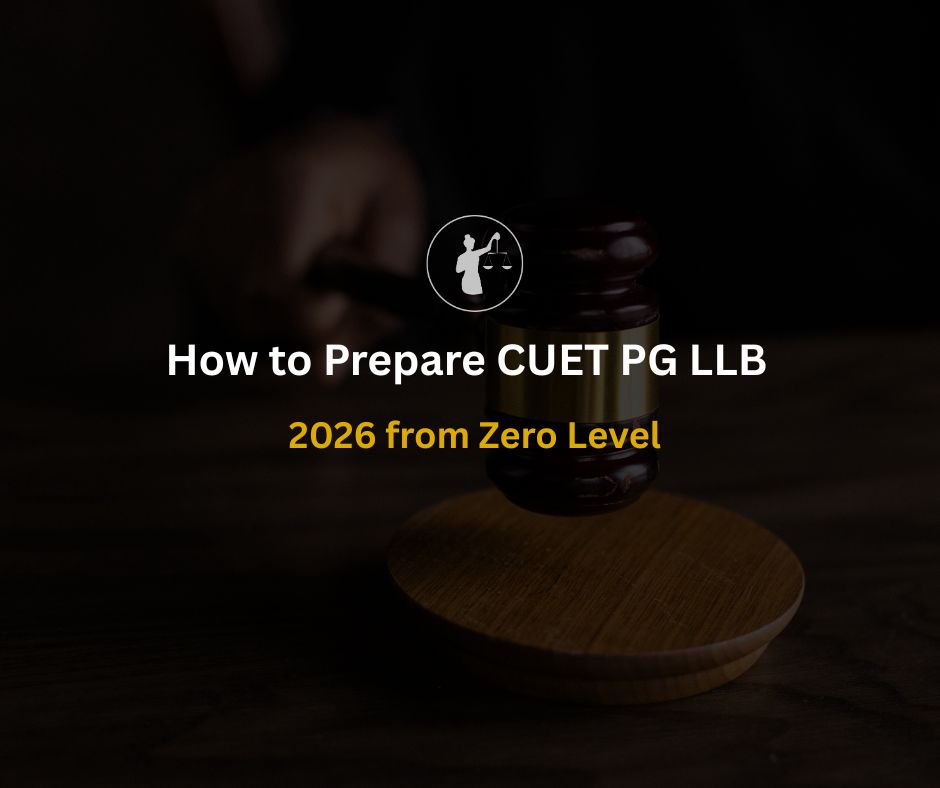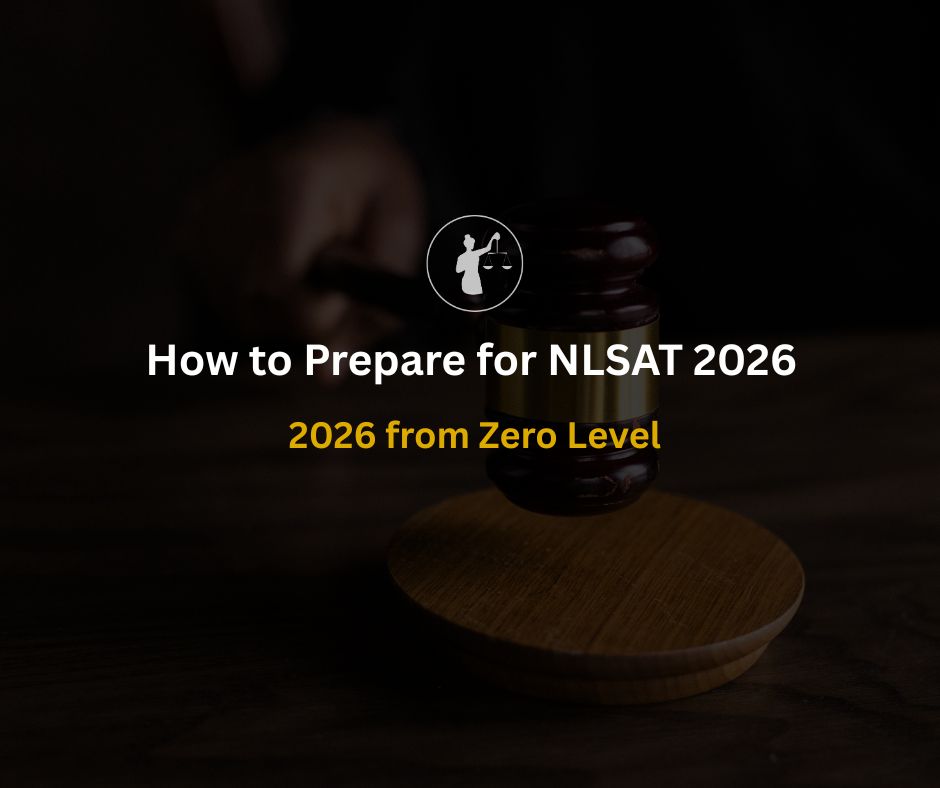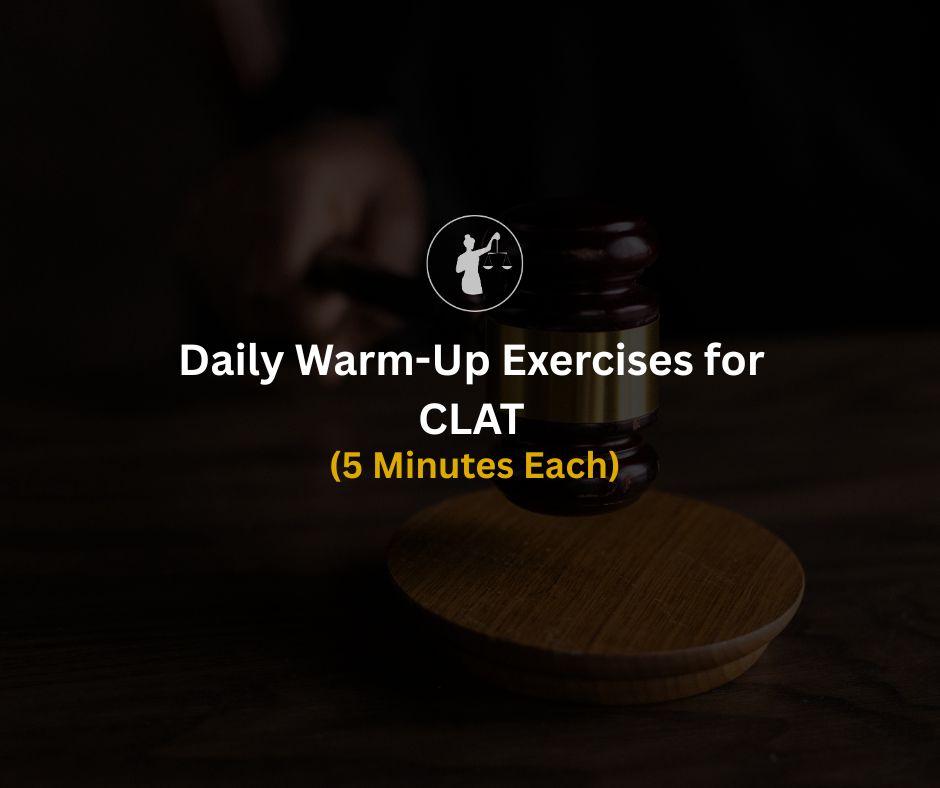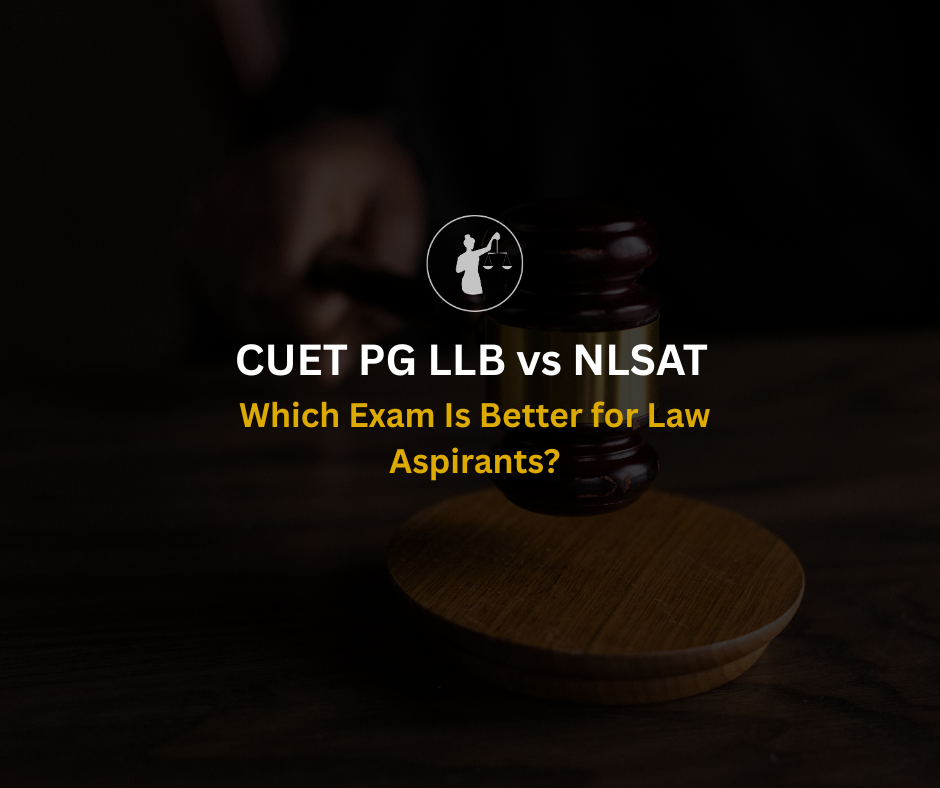
Legal Aptitude is a core component of the NLSAT 2026, particularly within Part B of the exam. While NLSIU does not expect candidates to have formal legal education, it requires them to demonstrate clarity of thought, the ability to apply legal principles, and a structured reasoning process. This guide will help you understand the important topics, test pattern, and essential resources for mastering Legal Aptitude NLSAT 2026.
Check out the NLSAT Online Coaching and Mentorship for 2026
In NLSAT 2026, Part B is evaluated only for candidates who clear the Part A cut-off. Legal Aptitude is tested through 5 subjective questions, each carrying 12 marks, for a total of 60 marks. It also consists of an Essay element of 15 marks, which will be explained separately.
Candidates must apply legal principles to hypothetical fact situations, and are expected to write clear, well-reasoned responses using logical structuring particularly the IRAC method (Issue, Rule, Application, Conclusion).
Crucially, prior legal knowledge is not required. All necessary principles are provided in the questions themselves.
Also Read: NLSAT previous year papers PDF Free Download
Structured Reasoning: Demonstrating a clear, step-by-step analysis of legal problems.
Analytical Thinking: Applying abstract rules to unfamiliar factual scenarios.
Clarity of Writing: Expressing legal reasoning in a coherent, concise, and structured format.
1. Structured Reasoning
In Legal Aptitude NLSAT 2026, each question presents a legal principle and a set of facts. Your response must reflect a step-by-step analysis where each part of the reasoning builds logically on the last.
A high-scoring answer:
Identifies the issue: What is the core legal question based on the fact pattern?
States the rule clearly: What is the applicable principle as given in the question?
Applies the rule to each relevant fact: Without skipping steps or making leaps.
Draws a logical conclusion: That flows directly from the prior reasoning.
This is best executed using the IRAC method (Issue, Rule, Application, Conclusion). NLSIU values structured responses because legal reasoning itself is inherently structured. Disorganised or vague answers, no matter how insightful, tend to underperform.
Example in NLSAT 2026 Legal Aptitude: Given a principle on “reasonable care,” and a scenario where a driver speeds in foggy weather, your answer must walk through whether a duty was owed, whether it was breached, and how a breach caused damage. Each inference should be justified, not assumed.
2. Analytical Thinking
Legal Aptitude in NLSAT 2026 is not about memory it’s about the ability to apply a general rule to a new set of facts. This is where analytical thinking plays a decisive role.
Strong analytical thinking enables you to:
Interpret broad legal terms within a specific context.
Spot nuances or exceptions in the fact pattern that affect how the rule applies.
Avoid formulaic answers instead, tailor your analysis to the exact scenario presented.
In NLSIU’s eyes, this skill reflects your potential to succeed in real legal settings where facts are never textbook examples, and each case requires fresh analysis.
Example in Legal Aptitude NLSAT 2026: If the principle speaks of “voluntary assumption of risk” and the scenario involves a player injured in a sports match, you must ask:
Did the player willingly assume this level of risk?
Was the harm within the scope of what could be expected?
Does the principle protect the other party in these specific circumstances?
Such questions require analytical application, not rote knowledge.
3. Principled Argumentation
Many students make the mistake of using personal morality or generic sympathy to frame their arguments. In contrast, Legal Aptitude NLSAT 2026 assesses how well you can argue from within the framework of legal principles — using concepts of justice, fairness, consistency, and coherence.
To demonstrate principled argumentation:
Base your reasoning on the values embedded in the given legal rule.
Avoid emotional or subjective language (“this is unfair”, “he deserves punishment”).
Justify each position with reference to the logic of the rule, not your intuition.
Examiners at NLSIU look for candidates who can reason through rules, not around them. Even when outcomes feel uncomfortable, your job is to argue what the law requires, not what you feel it should do.
Example in Legal Aptitude NLSAT 2026: If a principle excludes liability for “unforeseeable consequences,” and the fact pattern presents an extreme outcome, you must argue whether this consequence was foreseeable and not fall back on moral judgments like “someone must be held accountable.”
4. Clarity of Writing
Even the best reasoning fails if it’s buried under poor writing. Clarity is not a bonus it's essential to score well in Legal Aptitude NLSAT 2026.
Clarity of writing includes:
Cohesive structure: Paragraphs should flow logically, each advancing your analysis.
Concise language: Avoid jargon or long-winded expressions.
Proper formatting: Use IRAC, underline key terms if needed, and make transitions between ideas explicit.
Remember, each answer is evaluated by an academician trained in legal writing. Your job is not to impress with verbosity, but to communicate legal reasoning effectively.
Tip for Legal Aptitude NLSAT 2026: Before submitting, re-read your answer and ask: “Would a reader with no context understand my reasoning step by step?”
If the answer is yes, your writing is clear. If not, restructure for better coherence.
Many aspirants make the mistake of preparing for NLSAT 2026 like traditional law entrance exams, which is counterproductive. Avoid the following:
Legal Maxims and Latin Terms: These are not tested in NLSAT 2026, and using them without context weakens the clarity of your answer.
Memorizing Statutory Provisions: NLSIU wants to test your legal reasoning ability, not your recall of legal content.
Unfortunately, many coaching centers mislead students by teaching them to memorize laws and maxims that are explicitly not part of the NLSAT 2026 syllabus. This approach not only wastes time but can harm your performance in Part B, where structured, principle-based reasoning is rewarded.
1. NLTI Mock Tests for NLSAT
Curated by NLSIU alumni and students, NLTI mocks are built on actual NLSAT patterns and Part B expectations.
These mocks emphasize principle-based problem solving, IRAC structuring, and precise articulation — key to scoring high in Legal Aptitude NLSAT 2026.
As recently as NLSAT 2024, NLTI produced AIR 1, 2, 4, 5, 8, 19, and 28, making it the most reliable resource for aspirants targeting the top ranks.
2. Landmark Supreme Court Judgments (Simplified)
While NLSAT doesn’t require legal knowledge, reading summaries of key cases helps you see how legal reasoning works in real contexts.
Focus on reasoning patterns and structure, not on memorizing the holdings.
3. IRAC Practice Sets
Regular practice using mock scenarios helps improve both speed and quality of responses.
Work with mentors to get structured feedback and refine your argumentation style for Legal Aptitude NLSAT 2026.
Solve 3–5 IRAC-style problems per week under timed conditions (12–15 minutes per question).
Maintain a notebook of your answers and track improvements in clarity and structure.
Use high-quality mock tests aligned specifically with NLSAT 2026, not general law entrance exams.
Revise sample answers and understand what makes top answers stand out — logical structure, coherence, and precise language.
Q1. Do I need to know Indian laws for Legal Aptitude NLSAT 2026?
A: No. NLSIU clearly states that prior legal knowledge is not required. All legal principles necessary for solving questions are provided in the paper.
Q2. Are legal maxims or Latin phrases tested in Legal Aptitude NLSAT 2026?
A: No. These are irrelevant and often confuse the clarity of your answer. Stick to the principle provided.
Q3. What’s the best structure to answer Legal Aptitude questions?
A: Use the IRAC method — Issue, Rule, Application, and Conclusion. This format mirrors how legal reasoning is taught at top law schools like NLSIU.
Q4. Is it helpful to use coaching material for CLAT or AILET for NLSAT 2026 Legal Aptitude?
A: Not really. These exams focus more on memory-based questions, while NLSAT 2026 tests analytical reasoning and application. Use resources tailored for NLSAT.
Q5. Which mocks should I trust for Legal Aptitude NLSAT 2026 preparation?
A: NLTI’s mocks are the most accurate. Their success in NLSAT 2024 (producing top 10 AIRs) reflects their alignment with what NLSIU actually tests.





